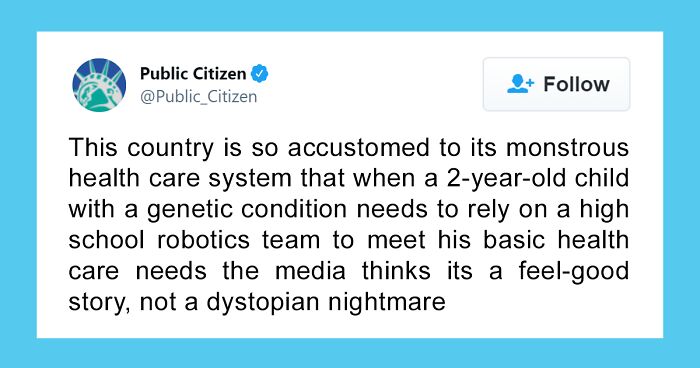
4 People Share Screenshots Of Dystopian Nightmares Being Presented As ‘Feel Good’ Stories
A dystopia is an imagined state or society in which there is great suffering or injustice, typically one that is totalitarian or post-apocalyptic. Like the one in The Road (2006), by Cormac McCarthy or V for Vendetta (1982-1989) by Alan Moore. And we might be already living in it. You don’t need to accidentally stumble upon a secret government laboratory to start thinking that way too. Reading the news will suffice.
People on social media have been sharing stories that the media publishes as ‘feel good’ but sound like dystopian nightmares instead. Continue scrolling to check them out and let us know what you think about them in the comments.
1.
Image credits: CBSNews
Image credits: Public_Citizen
2.
Image credits: Public_Citizen
Similar thoughts have been bugging people for a few years now. As reported in 2017, Penguin Random House has seen a 9,500 percent sales increase for George Orwell’s 1984 after Donald Trump’s inauguration. That was enough to push the book to the top spot on Amazon’s bestseller list. The publisher also saw enough demand for It Can’t Happen Here, Sinclair Lewis’1935 satirical novel about an authoritarian president, to reissue a paperback edition in December 2016—and then double down with a robust second print run a month later.
At the same time, Ben Rybeck, the general manager of Brazos Bookstore in Houston, Texas, said copies of 1984 and other similar titles were “flying” off the shelves. Book Loft in Columbus, Ohio, sales manager Glen Welch had also seen unprecedented demand. “All of a sudden, these books started taking off,” Welch, who describes the store’s customers as an even split between liberal and conservative, told WIRED. “I haven’t seen this before, in my 10 years here.”+
Part of the appeal of such books is simple escapism. Like writer Charley Locke pointed out, dystopian fiction enables readers to taste a darker timeline, albeit one that a protagonist invariably triumphs over. The world could be a lot worse, they think while turning one page after the other. But there’s more to it. A dystopian worldview, whether derived from fiction or real-world events, can have therapeutic value—no matter which side of the aisle your politics belong on.
3.
Image credits: thehill
Dystopian literature has long given authors a way of making sense of the world around them. For example, Orwell conceived of 1984 under the looming threat of the Soviet Union, and Margaret Atwood wrote The Handmaid’s Tale after the elections of Ronald Reagan and Margaret Thatcher.
“We can work our way through problems by telling stories better, at times, than by writing philosophical treatises,” Chris Robichaud, an ethicist at Harvard who teaches a course on utopia and dystopia in fiction and philosophy, explained. “You look to fiction to see how people are wrestling with serious problems.”
That’s valuable for readers as well, especially when the current political climate is so divided. “We can’t look at dystopias as merely some bad slippery slope argument,” Robichaud said. “Rather, they challenge us: What are the values in this dystopia, and what do they say about our values right now?”
4.
Image credits: cnn
Image credits: ChemistryAndPhysicsAreFun
Explanation:
Image credits: pookleblinky
Image credits: pookleblinky
Image credits: pookleblinky
Image credits: pookleblinky
Here’s what people have to say about all of this
Image credits: rauldouken
Image credits: SylvesterMarcu4
Image credits: GreatMcNate
Image credits: buildteachlift
Image credits: SpiralSuitcase
Image credits: YKJFosterYYC
Image credits: YKJFosterYYC
Image credits: voxael
Image credits: JacobGentz
Instead of basic universal healthcare there's GoFundMe. Seriously, why the hell are some people against universal healthcare. It works damn well in many countries.
I think because Americans don't want their tax money to be used for anything that does not directly improve their own personal situation. They think they'll be paying for stranger's healthcare, never considering they might one day need help themselves.
Load More Replies...Reading this, you actually become to realise that America is actually the sh*t hole country, and not this wondrous place you envisaged when you were young.
it has his good parts, just don't get sick or poor or speak something other than english and ow yeah don't be non caucasian :p
Load More Replies...Let it be clear that the dystopian USA only exists because voters support politicians who do not hide that they really don't care about the poor, the homeless, the needy or the sick. If your motto is : "Screw the people in need, we've got to look after ourselves, our families and our own interests", you stand a real good chance of being elected president.
Perhaps it should be a federal crime to lie to one's constituents.
Load More Replies...Instead of basic universal healthcare there's GoFundMe. Seriously, why the hell are some people against universal healthcare. It works damn well in many countries.
I think because Americans don't want their tax money to be used for anything that does not directly improve their own personal situation. They think they'll be paying for stranger's healthcare, never considering they might one day need help themselves.
Load More Replies...Reading this, you actually become to realise that America is actually the sh*t hole country, and not this wondrous place you envisaged when you were young.
it has his good parts, just don't get sick or poor or speak something other than english and ow yeah don't be non caucasian :p
Load More Replies...Let it be clear that the dystopian USA only exists because voters support politicians who do not hide that they really don't care about the poor, the homeless, the needy or the sick. If your motto is : "Screw the people in need, we've got to look after ourselves, our families and our own interests", you stand a real good chance of being elected president.
Perhaps it should be a federal crime to lie to one's constituents.
Load More Replies...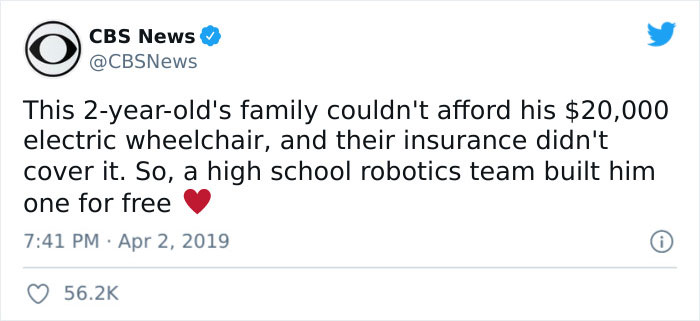
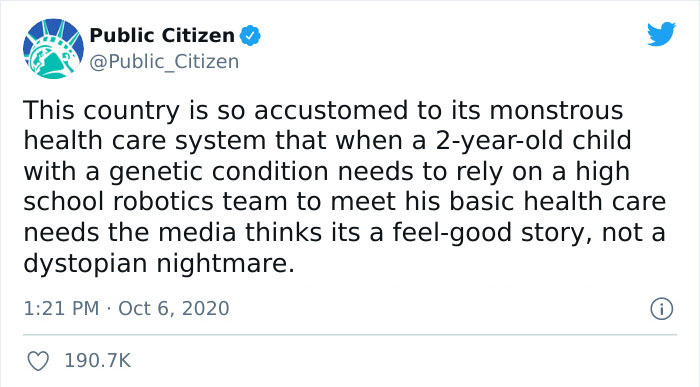
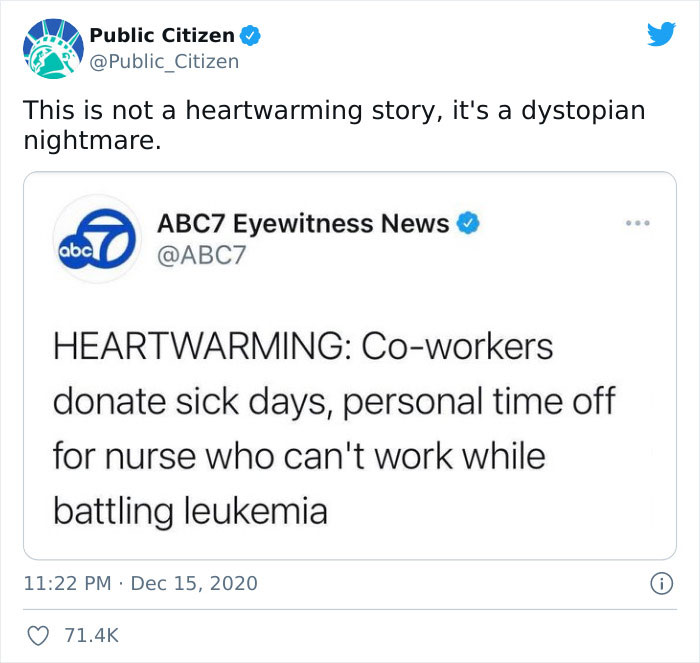
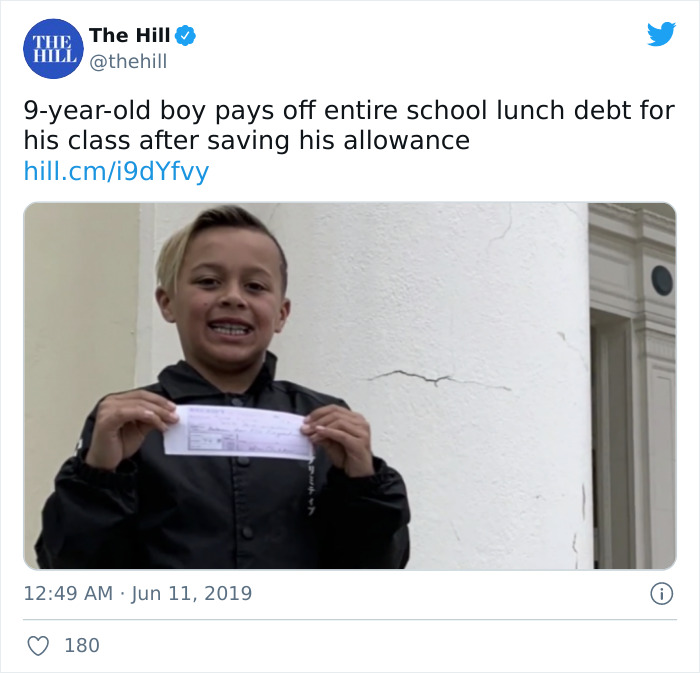
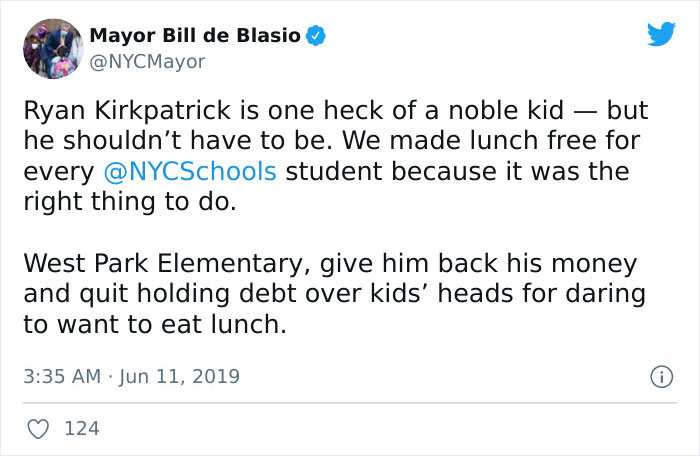
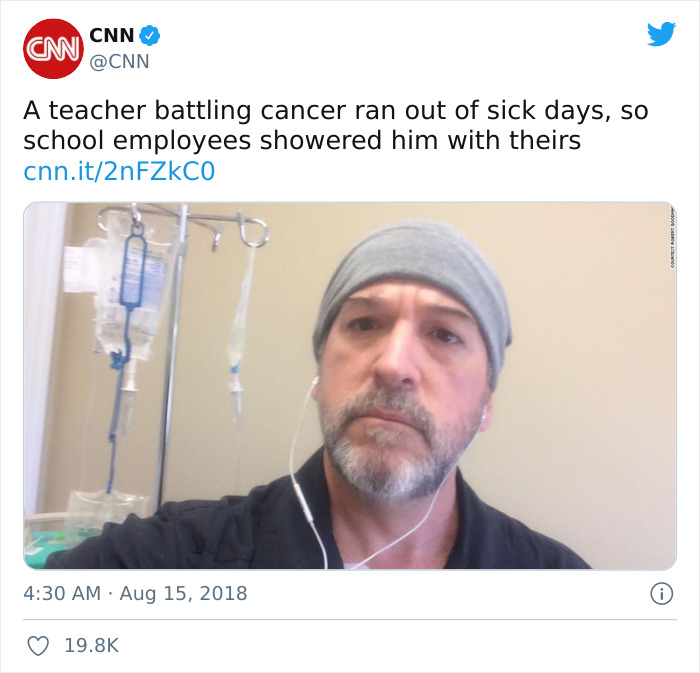
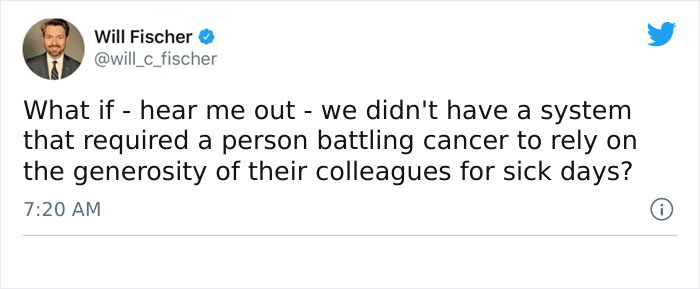
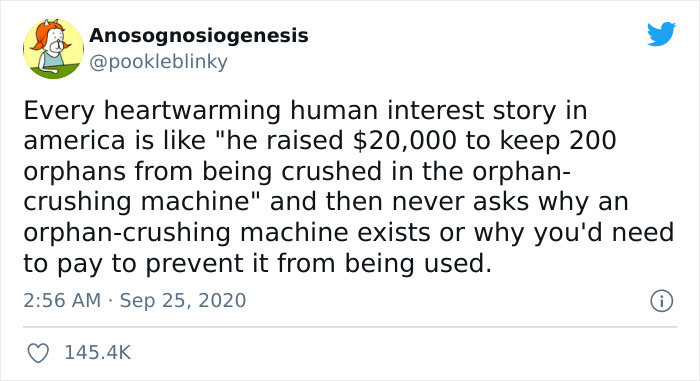
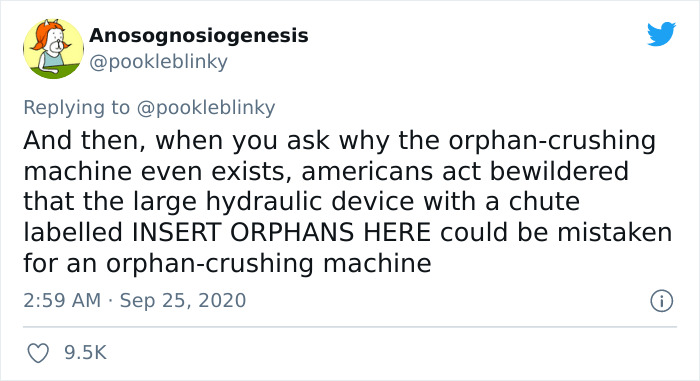
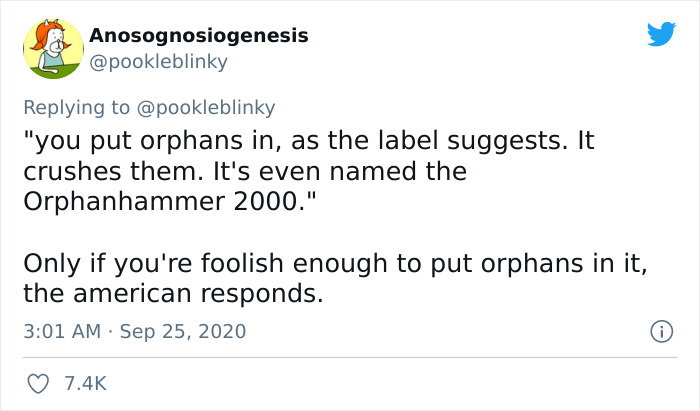
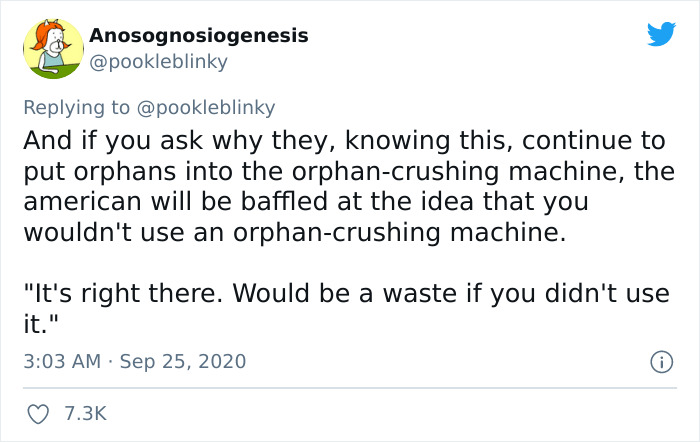
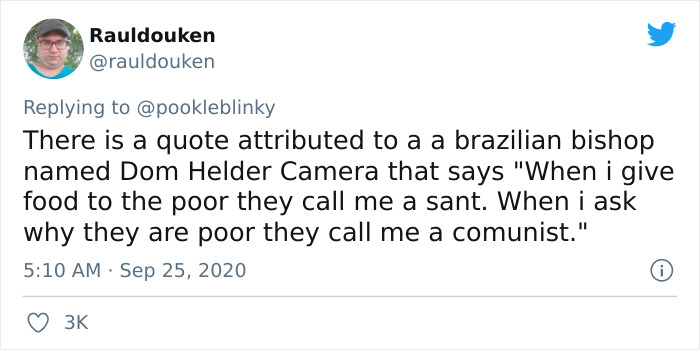
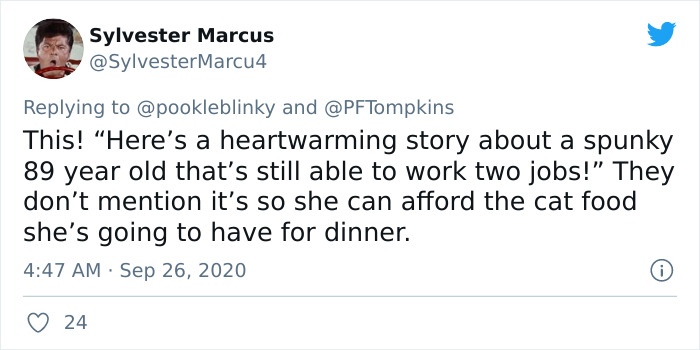
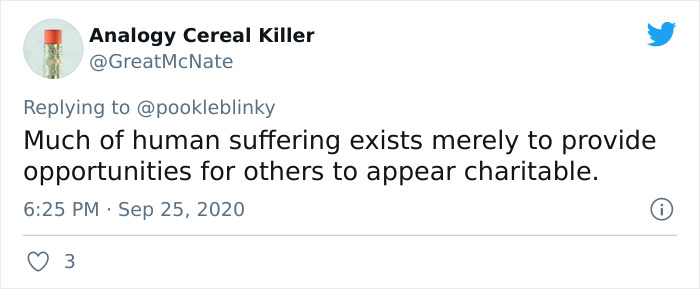
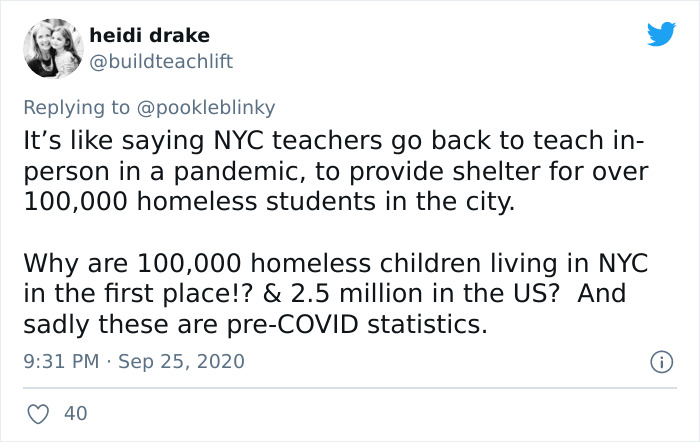
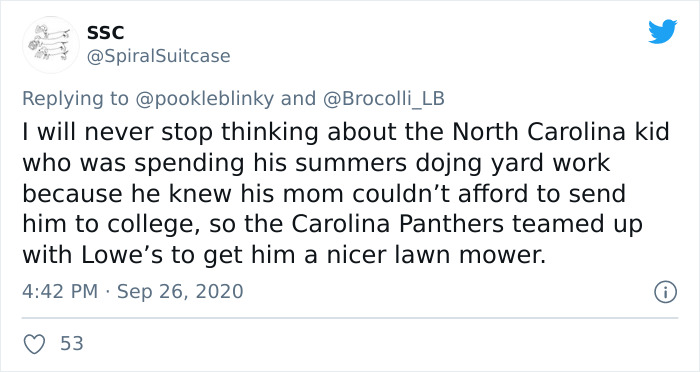
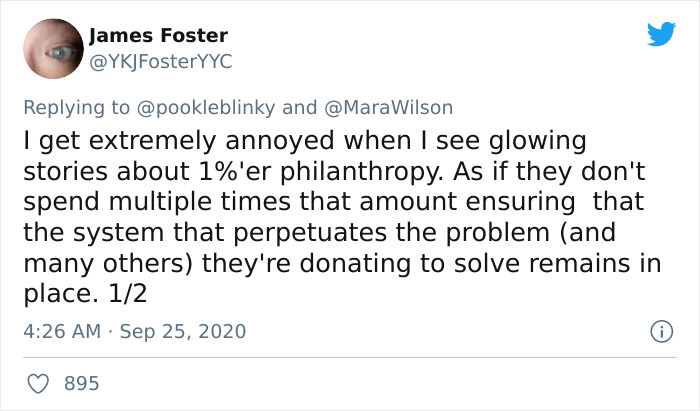
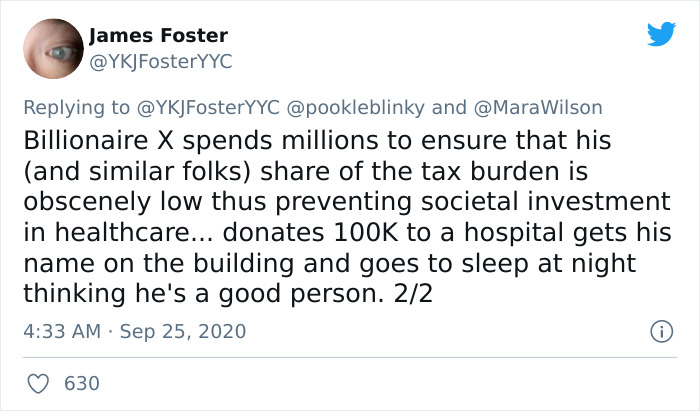
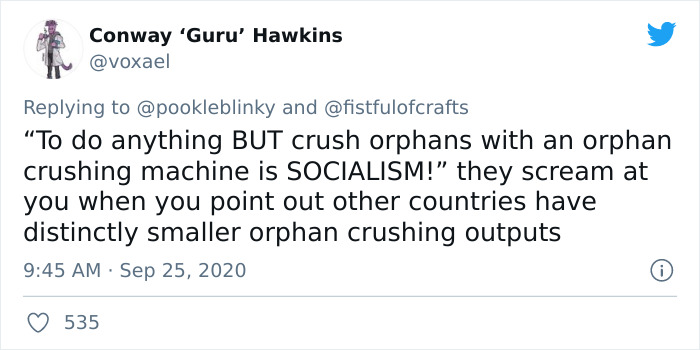
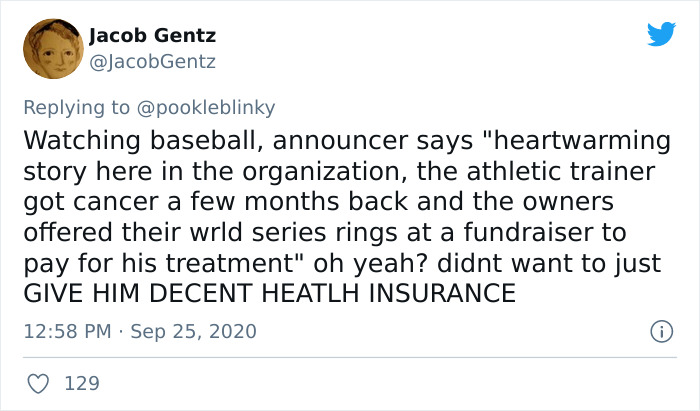




218
59